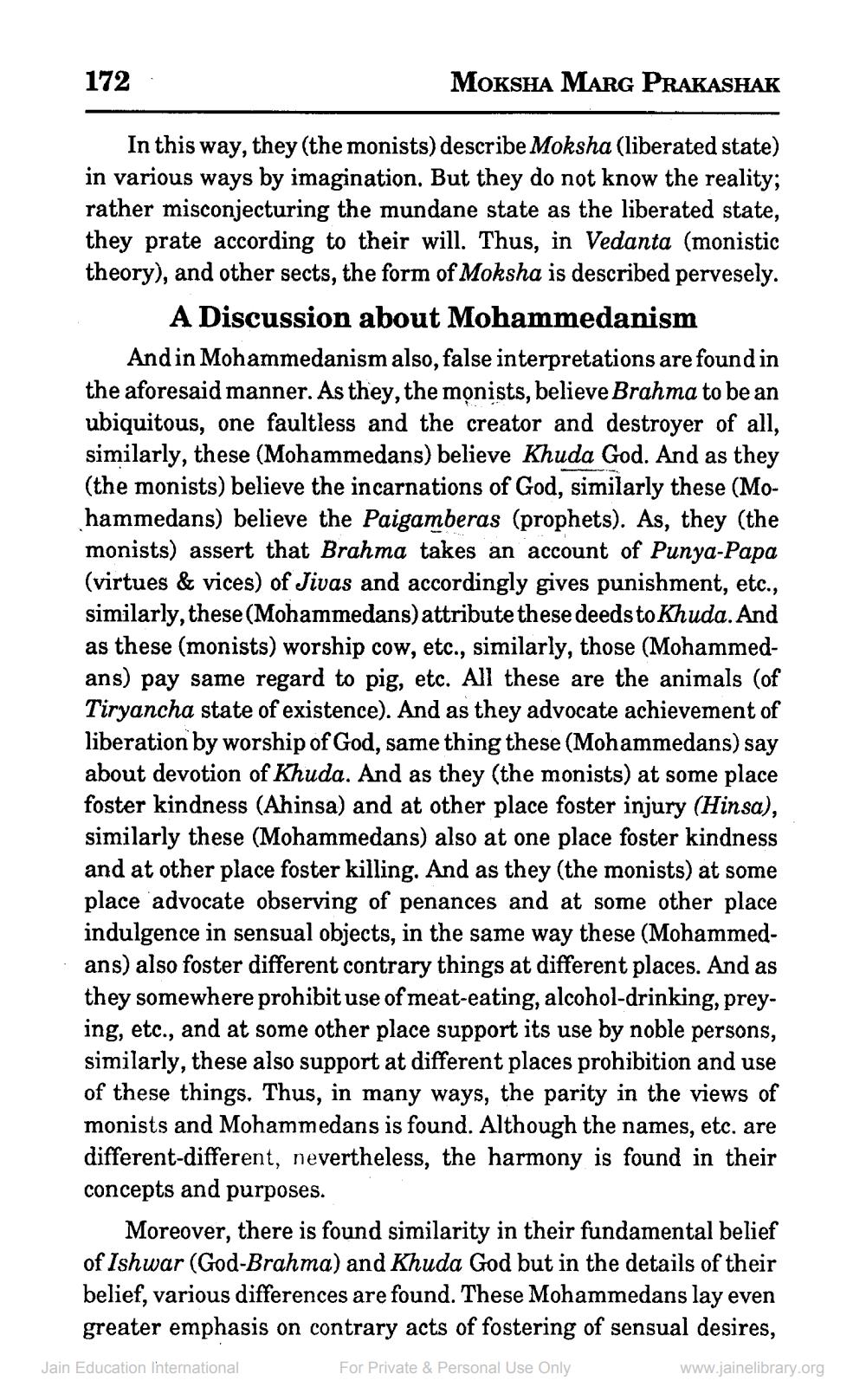________________
172
MOKSHA MARG PRAKASHAK
In this way, they (the monists) describe Moksha (liberated state) in various ways by imagination. But they do not know the reality; rather misconjecturing the mundane state as the liberated state, they prate according to their will. Thus, in Vedanta (monistic theory), and other sects, the form of Moksha is described pervesely.
A Discussion about Mohammedanism And in Mohammedanism also, false interpretations are found in the aforesaid manner. As they, the monists, believe Brahma to be an ubiquitous, one faultless and the creator and destroyer of all, similarly, these (Mohammedans) believe Khuda God. And as they (the monists) believe the incarnations of God, similarly these (Mohammedans) believe the Paigamberas (prophets). As, they (the monists) assert that Brahma takes an account of Punya-Papa (virtues & vices) of Jivas and accordingly gives punishment, etc., similarly, these (Mohammedans) attribute these deeds to Khuda. And as these (monists) worship cow, etc., similarly, those (Mohammedans) pay same regard to pig, etc. All these are the animals (of Tiryancha state of existence). And as they advocate achievement of liberation by worship of God, same thing these (Mohammedans) say about devotion of Khuda. And as they (the monists) at some place foster kindness (Ahinsa) and at other place foster injury (Hinsa), similarly these (Mohammedans) also at one place foster kindness and at other place foster killing. And as they (the monists) at some place advocate observing of penances and at some other place indulgence in sensual objects, in the same way these (Mohammedans) also foster different contrary things at different places. And as they somewhere prohibit use of meat-eating, alcohol-drinking, preying, etc., and at some other place support its use by noble persons, similarly, these also support at different places prohibition and use of these things. Thus, in many ways, the parity in the views of monists and Mohammedans is found. Although the names, etc. are different-different, nevertheless, the harmony is found in their concepts and purposes.
Moreover, there is found similarity in their fundamental belief of Ishwar (God-Brahma) and Khuda God but in the details of their belief, various differences are found. These Mohammedans lay even greater emphasis on contrary acts of fostering of sensual desires,
Jain Education International
For Private & Personal Use Only
www.jainelibrary.org




